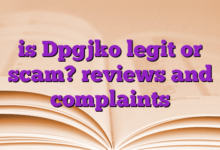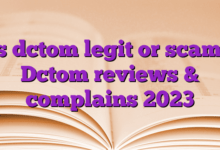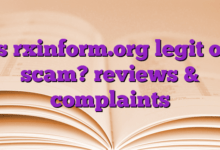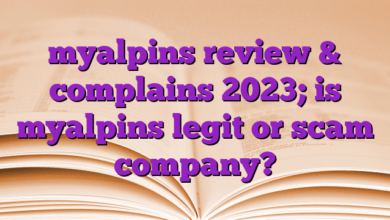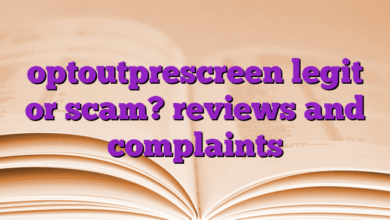google scholar.com Reviews 2023; what is google scholar?



KINDLY CLICK HERE TO JOIN MY WHATSAPP GROUP FOR ONLINE BUSINESS UPDATES 


Unleashing the Potential of Google Scholar: A Comprehensive Guide
In the realm of academic research, few tools have the power to revolutionize the way scholars discover and access scholarly literature quite like Google Scholar. Since its inception in 2004, this free academic search engine has been a game-changer for researchers, offering a vast repository of scholarly content ranging from articles and theses to books, abstracts, and even court opinions. In this comprehensive guide, we will delve into the intricacies of Google Scholar, exploring its features, search strategies, and common challenges, as well as highlighting its pivotal role in academic research.
Demystifying Google Scholar
What is Google Scholar?
Google Scholar is a free academic search engine that indexes a vast array of scholarly literature across disciplines. This encompassing database includes peer-reviewed papers, academic conference papers, court opinions, and research data sets, making it a treasure trove for academicians. Google Scholar is not only a testament to Google’s commitment to facilitating academic research, but it also reflects their response to the needs and feedback of researchers looking for more focused and refined academic search results.
Crawling the Academic Universe
One of the standout features of Google Scholar is its extensive web crawling, which spans scholarly papers and metadata from a plethora of sources. These sources include publisher websites, institutional and subject repositories, preprint servers, and many others. The engine’s primary goal is to provide a simple and efficient means for researchers to scour scholarly works using an interface that is reminiscent of regular Google searches. However, it is essential to note that Google Scholar may not encompass all academic journals and textbooks due to licensing constraints, and its coverage may vary across different subject areas.
Google Scholar: A Class Apart
How is it Different from Regular Google Search?
While Google Scholar shares its core search algorithms with Google, it distinguishes itself as an academic-focused search engine in several ways:
- Precision in Scholarly Literature: Google Scholar filters its search results specifically to scholarly literature, eliminating the clutter of non-academic content often encountered in regular Google searches.
- Citation Exploration: Researchers can explore citations within Google Scholar to trace where an author or article has been cited, thereby gaining valuable insights into the work’s impact and influence.
- Author-Centric Searches: Google Scholar allows users to search for authors, making it easier to discover their published works and track their scholarly contributions.
- Citation Metrics: It provides information on citation metrics, revealing the total number of times an article has been cited. These metrics are invaluable in assessing the significance of scholarly work.
- Free Full Text Access: Google Scholar often includes direct links to read full text articles or download PDFs, making it an accessible resource for researchers looking to access content without financial constraints.
- User-Friendly Interface: While maintaining the familiar Google interface, Google Scholar tailors its functionality to cater to the specific needs of researchers, enhancing the overall user experience.
In essence, Google Scholar strives to expedite academic research by surfacing high-quality scholarly sources, forging connections, providing citation metrics, and prioritizing academic literature over general web pages.
Navigating Google Scholar: Search Strategies
Basic and Advanced Search Strategies
Google Scholar offers a spectrum of search strategies, ranging from straightforward keyword searches to more sophisticated techniques that can enhance the quality of your results.
Basic Search – As with regular Google, users can input search terms, use boolean operators, and employ quotation marks to phrase searches. This basic search method grants broad coverage across scholar.google.com domains.
Field Search – For more targeted results, prefix your search terms with “intitle:”, “inauthor:”, or “allintitle:” to specifically search titles, authors, or restrict results to titles only.
Date Range – Filter results based on publication date by adding “before/after” or by specifying a range, such as “2015..2020.” This is especially useful for retrieving the most recent scholarly works.
Citation Search – Discover articles that cite a particular work or author by clicking the three dots icon and selecting “Cited by.”
Advanced Search – Access “Advanced Scholar Search” for a more robust set of filters, including the exact author’s name, publication title, source types, and much more. This feature grants researchers maximum control over their search results.
Wildcards/Truncation – Utilize “?” for single characters and “*” for multiple characters to broaden partial searches. For example, searching “econom?” will yield results for “economy” and “economies.”
Unlocking Advanced Features
Enhancing Your Scholarly Journey
Google Scholar offers a range of advanced features and tools that can significantly elevate your academic research experience.
Setting Up a Profile – Creating a free Google Scholar profile enables you to organize saved searches and references, thereby enhancing your research management. Additionally, it allows you to track citations over time, providing a valuable resource for monitoring the influence of your work.
Linked Accounts – Connect your ORCiD or Google account to Google Scholar. This not only streamlines tracking your publications but also fosters collaboration with other researchers.
Researcher Dashboard – The Researcher Dashboard is a dynamic tool for monitoring real-time metrics related to your published papers. You can track citations, readership activity, and your h-index, all of which contribute to a more comprehensive understanding of your scholarly impact.
Citation Alerts – Stay informed about the latest developments in your area of research by setting up email alerts. This feature notifies you when new articles cite works from your profile library, ensuring that you are always up to date with the latest academic discourse.
Import References – Seamlessly integrate citations from Microsoft Word or EndNote directly into your Google Scholar library, simplifying the management of your references and sources.
Library Links – Google Scholar offers integration with personal library accounts from over 250 institutions. This feature ensures that you have convenient access to full-text options, making your research journey even more efficient.
Beyond Articles: Datasets and More – Google Scholar’s extensive index includes not only articles but also datasets, patents, software, videos, and even court opinions. This expanded range of indexed sources broadens the horizons of your academic exploration.
Evaluating Sources – In the world of academia, source evaluation is paramount. Google Scholar aids this process by providing critical information about an article’s citation count, publication source, and authorship. This data helps you assess the credibility and impact of scholarly works promptly and effectively.
Mastering these advanced features empowers academics and researchers with potent tools for data tracking and collaboration, setting the stage for a more informed and effective research process.
Readslimina honest review & complains 2023; is slimina weight loss good?
Is brunello bellotti legit or scam? Reviews & complains 2023
Is lucky sudoku app legit & good App? Lucky sudoku reviews & complains 2023
is rimisneaker legit or a scam company? Reviews & complains 2023
Overcoming Challenges
Common Search Challenges
While Google Scholar is a remarkable resource for scholars, it is not without its challenges. Researchers may encounter certain issues that can impact the success of their searches:
- Inconsistent Indexing: Google Scholar may not uniformly index all sources, leading to instances where certain articles are not included in search results.
- Full Text Access: Access to full-text content is contingent on publisher open-access policies and library subscriptions. This variability can sometimes restrict the availability of certain papers.
- Timeliness: Google Scholar’s search algorithms may not always prioritize the most current or seminal works in specific research areas, potentially causing you to miss out on cutting-edge research.
- Citation Metrics: It’s important to note that citation metrics can be inflated in fields with highly-cited authors, leading to a potentially skewed understanding of a paper’s impact.
- Search Logic: Google Scholar may lack the advanced search logic found in specialized databases, potentially affecting the precision of your searches in certain instances.
- Coverage Clarity: The exact extent of Google Scholar’s coverage in terms of subject areas and source types can be somewhat opaque, making it challenging to gauge the comprehensiveness of your search results.
To address these challenges, it is often advisable to explore alternate search avenues. One approach involves examining the cited references of pivotal papers or closely tracking the works of influential authors. Additionally, librarians are invaluable allies in navigating the complexities of academic research, offering insights and guidance on the use of specialized library tools that can bridge gaps in Google Scholar’s coverage. Above all, it remains crucial to approach the results with a discerning eye, given the inherent variation in coverage levels.
The Scholarly Oasis
Conclusion
In the world of academic research, Google Scholar shines as a powerful and free resource for scholars and researchers alike. Its major strengths encompass a user-friendly interface, seamless citation exports, real-time metrics, and activity tracking capabilities, making it an indispensable tool for academics.
While Google Scholar may not capture every conceivable academic paper, it consistently delivers a wealth of high-quality content across a multitude of domains. Its extensive web crawling, which spans institutional repositories, publisher websites, and numerous other sources, ensures that researchers can readily access a broad spectrum of scholarly work.
Nonetheless, the true power of Google Scholar is unveiled when paired with a discerning approach to source evaluation and supplemented with library tools when necessary. The comprehensive strategies detailed in this guide unlock the full potential of Google Scholar, significantly enhancing scholarly work for researchers and academicians.
In the pursuit of academic excellence, Google Scholar stands as a cornerstone. With the effective use of this tool and a keen understanding of its features and nuances, researchers can embark on a journey of discovery and scholarship that knows no bounds. Through continuous use and mastery of the strategies elucidated in this guide, Google Scholar emerges as a beacon guiding scholars towards the pinnacle of academic research.
